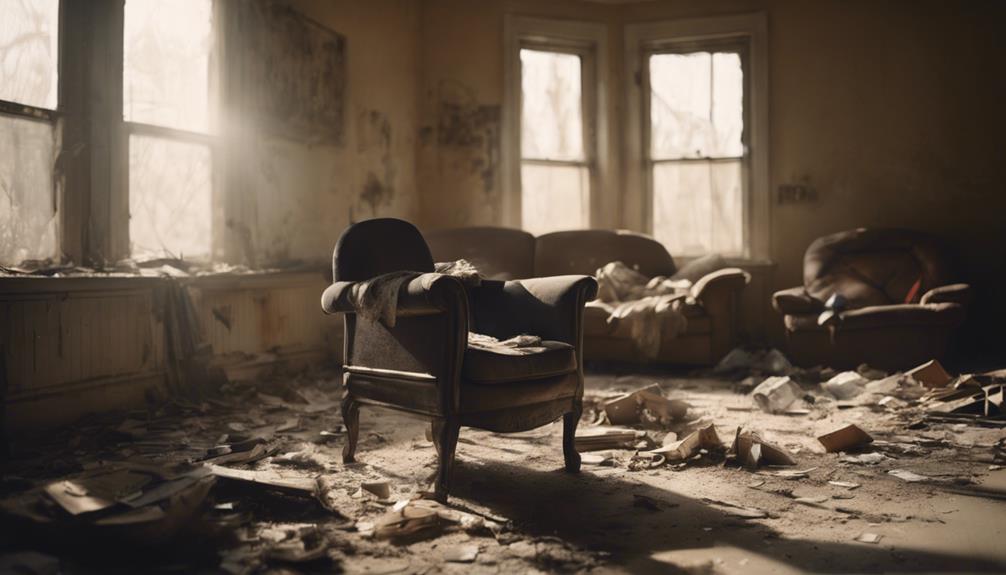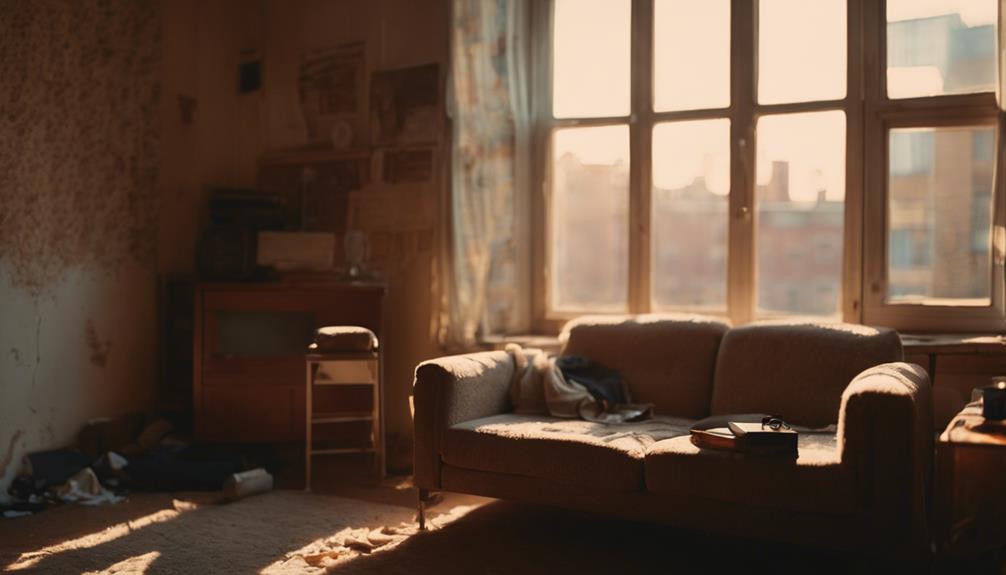Leaving furniture behind when you move out isn't usually a good idea. It complicates the process and might lead to misunderstandings, especially regarding your security deposit. You'll need your landlord's permission, and any items you leave could become their property after your lease ends. This means they could dispose of your belongings without any notice. It's best to take all your personal items and leave the space in good condition for the next tenant. If you're curious about the best ways to handle unwanted furniture, there are options that might work for you.
Leaving Furniture in an Apartment
It's generally discouraged to leave furniture behind when moving out of an apartment, as it can complicate the process and lead to disputes.
If you're considering leaving items, you need to get your landlord's permission first. Unwanted furniture may seem harmless, but it can create misunderstandings regarding your security deposit or lead to extra charges.
The best practice is to remove all your personal belongings upon moving out. Not only does this help you avoid potential complications, but it also leaves the space in good condition for the next tenant.
Avoiding Furniture Moving Hassles
Renting furniture can simplify your move by eliminating the hassle of transporting heavy items. Instead of worrying about how to fit bulky couches and beds into your moving truck, you can focus on packing your essentials.
Companies like CORT offer customizable furniture packages that cater to your specific needs, making it easy to choose what works best for you. Plus, they handle delivery and setup, so you won't have to lift a finger.
This approach not only reduces stress but also saves you time and energy, allowing you to settle into your new place without the burden of moving large pieces. Ultimately, renting furniture can streamline your changeover and make moving a breeze.
Consequences of Leaving Furniture

Leaving furniture behind when moving out can have serious consequences, as any items left after your lease expires may become the landlord's property. This means the landlord can dispose of your belongings without notice, leading to potential loss of valuable items. If you intentionally leave items, you might also face cleaning charges. It's crucial to contact your landlord promptly if you've accidentally left anything behind. To avoid these issues, consider donating or selling unwanted furniture before moving out.
| Consequence | Description |
|---|---|
| Loss of Property | Items become landlord's property |
| Disposal Without Notice | Landlord can discard belongings immediately |
| Potential Charges | Cleaning fees for left items |
Leaving Food in the Refrigerator
When moving out, failing to dispose of food in the refrigerator can lead to unexpected cleaning charges and hygiene issues.
It's crucial to check your lease agreement, as many specify rules about food disposal. Leaving food behind can create unpleasant odors and attract pests, which can complicate your move and potentially affect your security deposit.
To avoid these consequences, take the time to either consume or discard any perishable items before your departure. If you've got non-perishables, consider donating them to a local food bank.
Abandoning an Apartment

Abandoning an apartment can lead to significant penalties and complications you'd want to avoid. If you decide to leave without properly notifying your landlord, you might face serious consequences, including:
- Fines for violating your lease agreement.
- Legal action from your landlord, which can escalate quickly.
- Continued rent responsibility until the lease officially ends.
Instead of abandoning your apartment, it's best to communicate with your landlord and explore your options. This way, you can minimize penalties and guarantee a smoother shift.
Always remember that taking the proper steps before moving out protects your financial and rental history.
Frequently Asked Questions
Can I Leave Furniture for the Next Tenant?
You shouldn't leave furniture for the next tenant without your landlord's permission. It can complicate the moving process and lead to disputes. It's best to remove all personal belongings before you move out.
What if I Can't Move My Furniture in Time?
Life's a juggling act, and if you can't move your furniture in time, consider renting temporary pieces or asking friends for help. Don't let stress weigh you down—plan ahead to ease the shift.
Is It Legal to Leave Behind Large Appliances?
It isn't typically legal to leave large appliances behind without your landlord's permission. They may consider them abandoned property. Always check your lease agreement and communicate with your landlord to avoid potential disputes.
How Do I Dispose of Furniture Properly?
To dispose of furniture properly, consider donating, selling, or recycling it. Check local services for pick-up options or schedule a drop-off. Always guarantee you follow any regulations to avoid fines or complications.
Can I Ask a Friend to Pick up My Furniture Later?
Yes, you can ask a friend to pick up your furniture later, but make sure they're available and willing. Just coordinate a suitable time, so you don't end up with any last-minute complications.
What are the Advantages of Leaving Furniture Behind When Moving Out?
When moving out, leaving furniture behind can save time, money, and effort. Renting furniture benefits include avoiding the costs and hassle of transporting heavy items, reducing the risk of damage, and creating a fresh look in the new space. It’s a convenient option with many advantages.
Conclusion
When moving out, it's easy to think about cutting corners by leaving furniture behind, but remember: “A stitch in time saves nine.”
Taking the time to properly handle your belongings now can save you from headaches later. By removing all personal items and avoiding disputes with your landlord, you'll guarantee a smoother changeover.
If you're feeling overwhelmed, consider renting furniture to lighten your load. A little planning goes a long way in making your move hassle-free.










